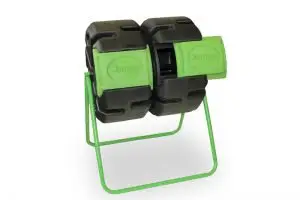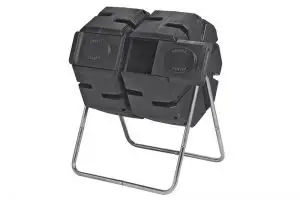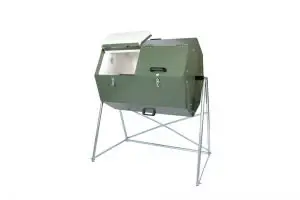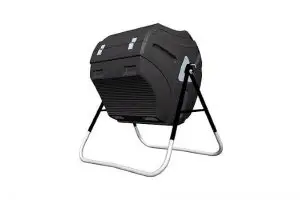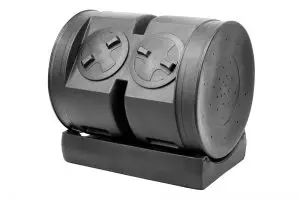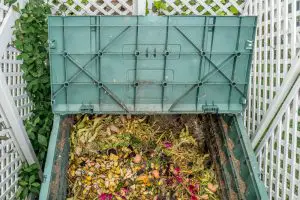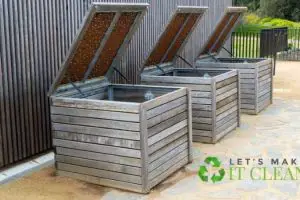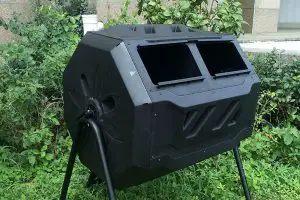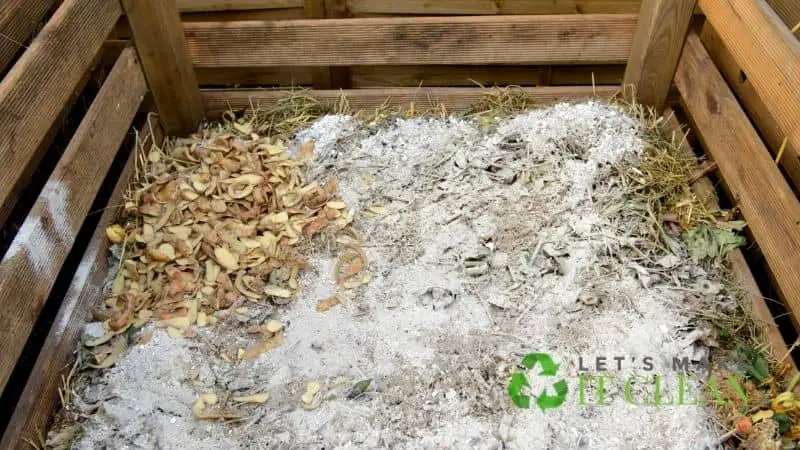Technology has resulted in people using composting toilets to turn human waste into high-quality compost. For your compost toilet to smell, there must be a problem with maintenance.
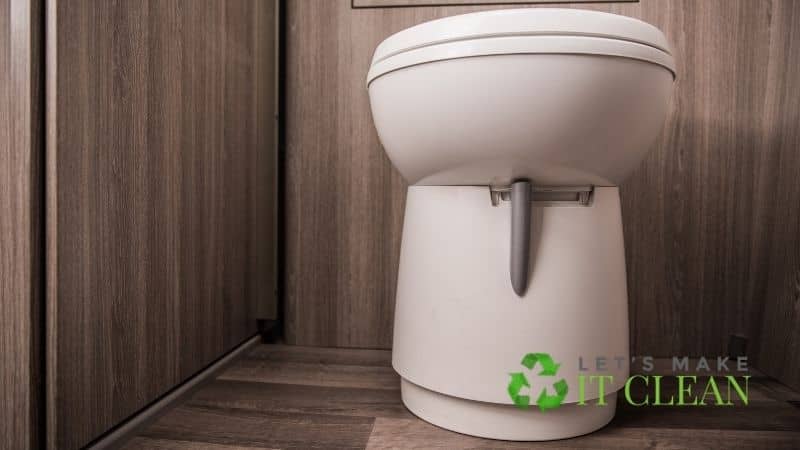
The negative pressure inside the composting toilet allows you to enjoy a comfortable stay without worrying about stinky smells. However, if the compost pile is too wet, bacteria will thrive, causing it to smell.
Quick Navigation
Are you worried about having foul odors in your house if you use a composting toilet? Worry no more. This article has all the information you need to know about composting toilets and their smells.
When setting up a composting toilet, ensure you utilize urine-diverting techniques. The heap will remain at the optimum moisture levels.
Composting toilets take human waste, similarly to flush toilets. The difference is usually that compost toilets store the waste for composting.
Excess moisture in a heap creates an aerobic environment resulting in unwanted odors. Here is a detailed analysis of the odors and how to prevent them.
How Do I Stop My Compost Toilet From Smelling?
Whenever you begin getting unwanted smells from your compost, use the following techniques to stop the smells.
Correct Moisture Level
For a compost pile to successfully decompose without smells, it needs to be moist rather than wet. If your pile is excessively wet, it will not have sufficient oxygen for composting, thus emitting an odor. Inadequate oxygen will also hamper the decomposition process.
On the other hand, if your heap does not get moist enough, it will not compost adequately. The advantage of using a urine-diverting toilet is that you employ urine-diverting technologies.
If your composting chamber is not self-contained with urine diversion, ensure you develop a way to divert the liquid wastes. Alternatively, use heaters that will facilitate the evaporation of liquid wastes in the composting systems.
The liquid wastes you divert do not necessarily have to go to waste treatment plants. You can use it in your outdoor composters since it contains beneficial elements, including nitrogen, phosphorus, and potassium.
With the help of other organisms, the liquid wastes will accelerate the composting process of organic matter in the tumblers and bin.
Make Use of the Toilet’s Lid
Whenever you leave the toilet seat lid open, soldier flies, bugs, and other insects find their way into your compost toilets. These insects will breed in there and multiply. You might even occasionally see flies in your house, which can be annoying.
If you always leave the lid down, unwanted insects will not get into your compost toilet. As a result, they will not affect your composters’ microbial activities, thus preventing a foul odor.
Make Use of Humanure Handbook
Make sure you buy a humanure handbook and invest your time in reading it. The information in this book will beef up the knowledge you get from this article. You will get an idea and advice on how gardening composters help change the fate of the world ecology.
Utilize human waste composting techniques to make fertilizer for your garden. Composting toilet users don’t need to use chemicals or high technology, confusing some gardeners. Turn the human excrement into fertilizer with ease.
Add a Solar Panel
If you add a solar component, you will save money used to settle the electrical bill. The air inside the composter will get heated.
The excess moisture in the garden composters will evaporate, leaving your heap with the right amount of moisture.
Use Natural Cleaners
Natural cleaners eliminate the terrible smell that comes from a poorly maintained compost toilet. Once you have emptied the pile, ensure you clean your composting toilet systems. Cleaning will get rid of smells that would potentially cause discomfort in your living conditions.
It will be best to use natural cleaners since they do not kill the beneficial microbes in compost toilets.
Make Use of Toilet Paper
Toilet paper helps in soaking up some of the moisture in your compost pile. A person who continually uses toilet paper adds essential carbon material for composting.
Can You Pee in a Composting Toilet?
Yes, you can urinate in a compost toilet. Be warned, however, that if your toilet does not have a urine-diverting system, you risk raising your compost pile’s moisture levels.
For homeowners who have a sewage system that diverts liquid wastes, your compost pile is less susceptible to being excessively wet.
Once you have diverted the liquid wastes away from the poop, place it in a container and take advantage of the list of its benefits.
How to Use Urine
The first step is to dilute the urine. For every part gallon of urine, add three to six gallons of water. Now pour the mixture in your garden soil in an area with plants.
Please avoid using this solution on seedings since the urine is likely to burn them.
The kitchen scraps, food scraps, a bit of sawdust, dry leaves, and other material that you dispose of are compostable. Gather these organic materials and put them in a compost bin.
Now use a urine bottle to pour the liquid wastes from your compost toilets on the organic matter and wait for it to rot. You can also spray using a spray bottle.
Add the liquid wastes to the greywater system. Alternatively, you can add the liquid wastes to your constructed wetlands.
If you have plants that depend on lots of nitrogen, dig a basin and add much to it. Now divert the liquid waste to the basin. Ensure that the basin is nowhere near a drinking water well, natural waterways, or a high water table.
When the urine leaches into these waters, it pollutes them, making the water risky for human or animal consumption.
How Often Do You Have to Clean a Composting Toilet?
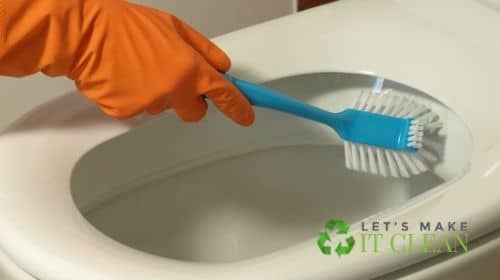
The compost toilet bin fills up depending on how many people are using the toilet and how often they use it.
On a general basis, when two people use a composting toilet as their full-time toilet, you will need to empty and clean it after three weeks.
Make sure you use natural cleaners when cleaning to avoid killing beneficial microbes. If more people are using the toilet, you will need to clean it before three weeks elapse.
Do You Have to Empty a Composting Toilet?
Yes, you do. Once the bin has accumulated enough human waste for composting, make sure you empty anything in it. Here are the emptying guidelines you need to follow.
Guidelines to Emptying a Garden Composter
- For sanitation purposes, a good idea is always to have a dust mask whenever handling a composting toilet.
- Ensure you also have protective gloves on when handling a compost toilet or the compost pile itself.
- Wash the clothes you were in when emptying the compost toilet since you may have touched some poop.
- If the compost is too heavy to carry on your own, use a wheelbarrow or ask someone to help you.
- Burry the compost at least ten centimeters deep in the garden.
Do Composting Toilets Smell Bad?
A well-maintained compost toilet does not have a bad smell. The moisture content in your compost pile needs to be correct. Make sure the toilet’s content is not too wet or too dry.
If the content is too wet, add dry leaves or sawdust to soak up the excess water, and you will not have any bad smell.
The little smell produced by these toilets in homes is similar to that of wood or mulch and is not pungent. Also, the smell is not too much such that you cannot handle it.
Conclusion
Using a composting toilet does not lead to your house stinking. However, you need to check the moisture levels in a pile to ensure it doesn’t get excessively wet.
Sawdust and dry leaves help reduce the amount of water in a pile. Divert urine is necessary but not mandatory.

